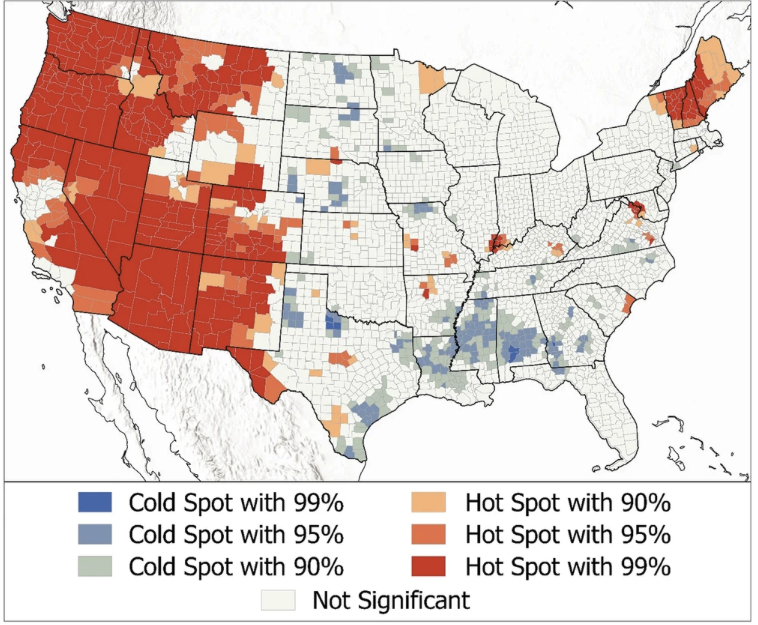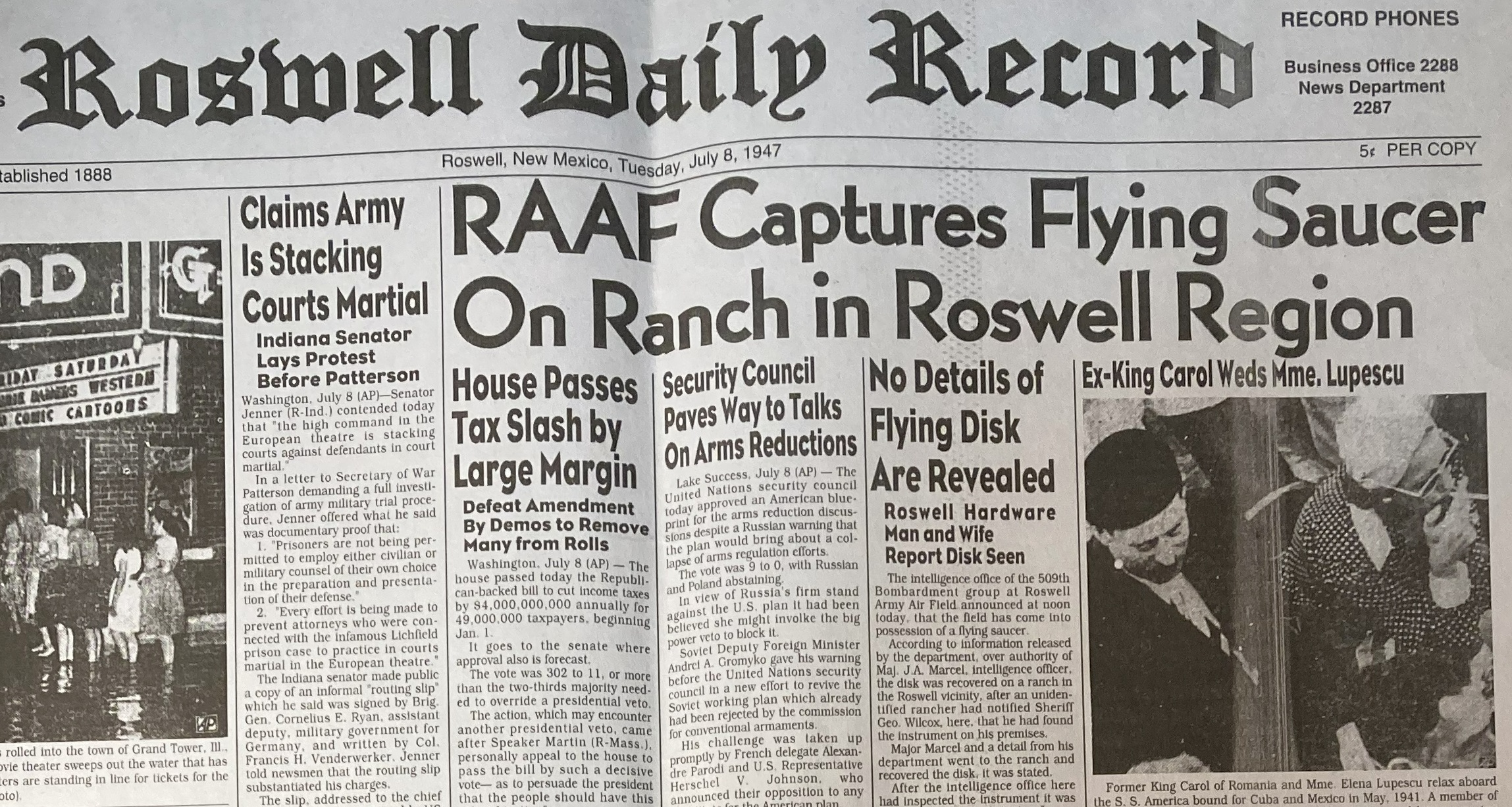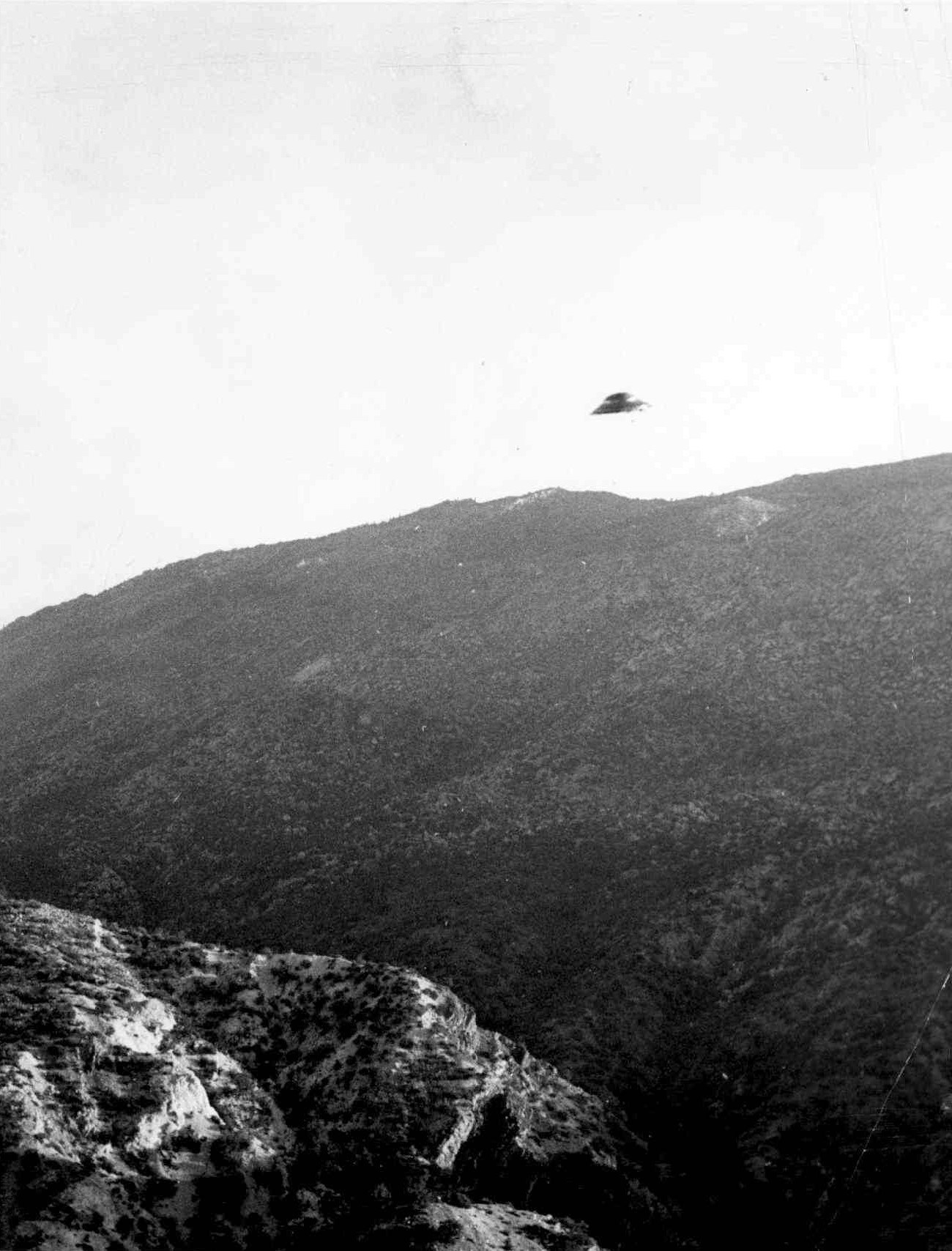
Those of us in the western U.S. who enjoy vast open spaces may also be more likely to report UFO sightings, a new study suggests.
An analysis of unidentified aerial phenomena (UAP) reports (UAP is a new umbrella term that includes UFOs not just in the sky but also in space and underwater) suggests local environmental factors play a role in the number of UAP sightings reported.
The study, based on about 98,000 reports over 20 years as cataloged in an open-source, online dataset maintained by the National UFO Research Center (NUFORC), modeled how reported UAP sightings coincide with environmental variables such as light pollution and cloud cover, as well as things like proximity to airports and military installations. The results reveal the majority of reported sightings originate in the western U.S., along with a smaller hotspot in the northeastern U.S.
Related: Pentagon UFO office finds 'no empirical evidence' for alien technology in new report
"It was completely unexpected," Richard Medina, a geographer at the University of Utah who led the study, told Space.com. "It's difficult to explain why we have this many more sightings in the West."

Pinning down the environmental context of these sightings is important when considering explanations for presumed UAP occurrences; it can also help scientists differentiate between non-results and truly anomalous sightings that may be a legitimate threat, said Medina.
He and his colleagues posit that the large number of sightings in the western U.S. can partly be explained by its wide-open spaces and all-year temperate weather, which draw people outside for recreational activities. "People are out and looking skyward," Medina said in a statement
The West's historical relationship with UAPs could also be contributing to the high number of reports from the region, the researchers say.
Nevada's fabled Area 51, for instance, is infamous as a speculated testing ground for alien technology. The highly classified military facility, about 100 miles (160 kilometers) from Las Vegas, has tested odd-shaped surveillance aircrafts since at least the 1980s, thus sparking suspicions and conspiracy theories about the U.S. government testing alien technology. After the U.S. government acknowledged the facility for the first time in 2013 and released associated documents, many reports of UFO sightings matched with dates and times of flights of experimental aircraft classified at the time.
In another example, the desert town of Roswell in New Mexico became well-known for the purported crash of a flying saucer back in 1947 after a couple residents came across wreckage of rubber strips and tinfoil. The U.S. Air Force, however, later disclosed the remains were from a classified, multi-balloon project to sniff out Soviet nuclear tests. Such incidents may have led to an increased number of UAP sightings, suggesting people are spotting terrestrial objects but not recognizing them to be such, Medina and his colleagues argue.
"We make no hypotheses about what people are seeing, only that they will see more when and where they have opportunity to," the researchers write in their paper. "The question remains, however, as to what these sighting reports are of."

'What are people actually seeing?'
NUFORC is a public, self-reporting system, although the data bank's website does state its staff removes obvious hoaxes as well as highlights a small subset of potentially interesting, credible cases reported by trained observers such as pilots or those with clear video or photo evidence.
In this dataset, Medina and his co-authors analyzed two factors for sightings in each U.S. county. The first had to do with sky view potential, which includes the region's light pollution, cloud cover and tree canopy cover; the second dealt with the likelihood that objects in general are in the sky, which considers things like proximity to airports and military installations.
"There's more technology in the sky than ever before so the question is: What are people actually seeing?" Medina said in a statement. "It's a tough question to answer, and it is an important one because any uncertainty can be a potential threat to national security."

When the researchers started their analysis, they expected the number of UAP sightings to increase relatively slowly over time, thanks to advances in the internet that improved the ability to report. "But that's not what we see," said Medina. "We see these really unique patterns and we're not sure how to explain those."
For instance, UAP reports across two decades peaked in 2014, when 8,000 sightings were entered into the NUFORC database. Additionally, in a stark contrast to the high number of UAP sightings in the West, the Central and Southern U.S. remain woefully empty. "We really don't know at this point why there are fewer sightings in the south," said Medina. "The results we're getting are supported by the research, but we could still be wrong too," he added.
Early last month, a highly anticipated report by the Pentagon's UFO office found "no empirical evidence" that the U.S. government was covering up knowledge about alien technology and said there was no evidence that any of the reported UFO sightings represented extraterrestrial spacecraft. That report, a 63-page review of classified documents since the 1940s that was mandated by Congress, noted many UAP reports remain unsolved or unidentified due to lack of data. If better quality information were to become available, many of those unresolved sightings could be identified as ordinary objects of phenomena, the report said.
Christopher Mellon, the former Deputy Assistant Secretary of Defense for Intelligence, previously told Space.com that "hundreds of credible military reports remain unexplained and are continuing to pour in."
Ongoing work by Medina and his team is exploring whether there are temporal patterns in the NUFORC data. Other variables such as drone activity, science balloons and other sociocultural aspects, will also be examined to see whether they correlate with the reported sightings, Medina told Space.com.
"We're just barely getting started."
This research is described in a paper published in the journal Scientific Reports.







